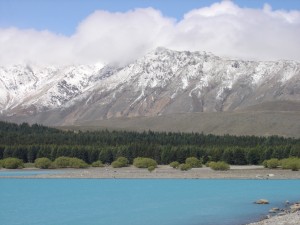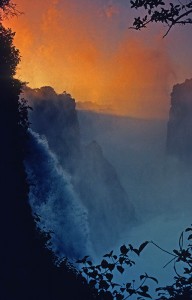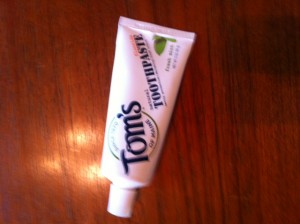traveling baby boomers
Starwood Hotels CEO Frits van Paasschen.
Starwood Hotels and Resorts CEO Frits van Paasschen, regarded as a visionary in the industry, has a fascinating take on what travelers will soon expect from their chosen lodgings (as recounted in this piece by Greg Oates in Skift.com).
“Today,” he recently told the hotel group’s annual sales pow wow in New Orleans, “a hotel brand can’t stand apart just by having a comfortable, reliable, clean room…that expectation today, driven by technology, is personalization.”
Van Paasschen gives the examples of Amazon.com and Facebook, who not only seem to know everything about their customers and users, they do know what their customers and users are looking for and like. (After all, we give them the information, and they know how to mine the data.)
“So how long will it be,” he asks, “before all of us expect a hotel brand where we spend… Continue reading

Jester the Weimaraner puppy and Instagram marketer overlooks the Queensland coast. Photo from Brisbane Times
From time to time I like to call attention to tourism bureaus and marketers using creative visuals to reach potential visitors.
A recent example is Bushmills in Northern Ireland painting faux people and animals on abandoned houses and shops to make it appear the town is more prosperous than it actually is. And with tourism increasing, it seems to be working.
Now Tourism Queensland (Australia) is using a six-month-old Weimaraner puppy named Jester to spearhead a new Instagram campaign intended to depict what life is like for typical Queenslanders.
Queensland residents are encouraged to send in their photos for Jester to post on Instagram between September 9 and 15. (Lacking opposable thumbs, Jester will be aided in this endeavor by regional photographer and a park ranger, but he will apparently be barking out his… Continue reading

If Niagara Falls is on your “bucket list,” Expedia may get you there. Photo from Niagara Falls State Park.
You may have seen the Expedia.com TV commercial in which a man stops random passersby, questions them about their dream trips and inquires, “If you were asked to drop everything right now, would you go?” and suggests that Expedia is ready to buy them a ticket and send them wherever they want — if they go now.
The ad is titled “Find Your Spontaneity,” a teaser for Expedia’s current “Trip A Day Giveaway” promotion.
Some say no, they just couldn’t do it today. But one man, whose dream is going to China, does agree to leave that night — and the next image we see is him standing on the Great Wall, not quite believing his good fortune.
The first thing that bothered me about this ad is that unless… Continue reading
If you start to see Chinese-style rice porridge appearing in your hotel’s breakfast buffet, don’t be surprised — it just means that hotels are catching on to the skyrocketing spending power of the sheer numbers of Chinese tourists now washing over American (and other) shores.
According to the United Nations World Tourism Organization, Chinese tourists spent more than $100 billion worldwide last year, up by more than third since 2011, during the course of some 83 million trips out of China. That’s more than any other nationality.
While the bulk of those statistics reflect travel within other parts of Asia, the U.S. is also seeing an influx of Chinese visitors — some 1.5 million of them in 2012, spending nearly $9 billion here. That’s an average of $6,000 spent per trip — also more than any other nationality.
The rise in Chinese visitors reflects a loosening of U.S. visa requirements… Continue reading
I’ve long had an ambivalent feeling toward the reviews on TripAdvisor, the extremely successful user-driven website that provides readers’ takes on everything from hotels and restaurants to museums and travel activities.
Like many baby boomers, I find the reviews can be extremely helpful in sorting out the travel-related chaff from the wheat — a long as I can first sort out the chaff from the wheat of the reviews themselves.
It’s not uncommon to come across restaurant reviews, for instance, that are the diametric opposites of each other:
“Ate at Luigi’s last night, and it was the greatest meal I’ve ever had — maybe the best that anyone has ever had! Love those meatballs!”
And, right below it: “Don’t listen to anyone who likes Luigi’s — this place is the worst! Worst food, worst service, and… Continue reading
Along with Switzerland, New Zealand is my favorite place to hike.
The “tracks,” as hiking trails are known there, lead along mountain ridges, lakes, and rivers and through valleys and rainforests. The scenery is, well, choose your cliche: spectacular, breathtaking, unforgettable.
Some of the tracks are relatively easy, while others can literally take your breath away.
A Kiwi-owned company, New Zealand Trails, makes it easy for baby boomers — about two-thirds of its customers are in the 49 to 67 boomer age range — to experience several of the tracks as well as other South Island highlights, such as a train journey across the Southern Alps, a glowworm cave, a kayak trip through a coastal lagoon, a scenic helicopter ride, a lake cruise, and a boat trip across Milford Sound.
Hiking trails include a… Continue reading
One of the big developments in cruising in the past few years is the rapid rise of river cruising, which has a big marketing advantage over ocean cruising among a certain segment of the population: namely, those who don’t like the idea of being out in the ocean on a big ship.

Emerald Waterways features an innovative “indoor balcony” in some cabins. Photo from Emerald Waterways.
Whether it’s fear of open water, fear of getting seasick, fear of overcrowding, or fear of being on a big ship if a crisis strikes at sea — such as some of the highly publicized events of the past year or two — a number of people just won’t consider taking a traditional ocean cruise. (No matter how much I or many other cruising advocates try to convince them otherwise.)
River cruising, on the other hand, enables you to stay close to land on… Continue reading
The news that Zimbabwe is planning a Disneyland-style theme park near Victoria Falls, one of the Seven Natural Wonders of the World, is yet another example that Robert Mugabe’s corrupt, brutal and clueless rule is ruining that beautiful central African country — for both its citizens and tourists.
One writer has likened it to building casinos next to the Pyramids in Egypt, and I can’t disagree. (Cairo has enough tacky papyrus shops near the Pyramids as it is.)
I’ve been lucky enough to twice visit Vic Falls — also known in local tradition as “The Smoke That Thunders” — and consider it among the most stunning places I’ve ever seen, on a par with Arizona’s Grand Canyon or China’s mist-enveloped, multi-peaked Mt. Huangshan.
The last time I visited Vic Falls, I saw Mugabe speak, shortly after he… Continue reading
On a recent trip to Europe, I carried a 3-ounce travel-size tube of toothpaste from Tom’s of Maine — a size that’s OK with the TSA to get through their “liquids” screening process at the airport. (“OK With the TSA” — a possible slogan?)
The Tom’s had a nice “fresh mint” taste for freshening breath; it’s said to whiten teeth “naturally,” to contain no artificial ingredients, dyes, preservatives or sweeteners, and to help remove plaque with regular brushing; it’s made with no animal testing; and the 40-year-old company gives 10 percent of profits back to the community to promote “human and environmental goodness,” always a hit with baby boomer travelers.
(Actually, it never occurred to me that toothpaste might be tested on animals — canine canines? monkey molars? chimp incisors? — but maybe that’s a subject… Continue reading
We had out-of-town guests over the weekend, and one recurring topic of conversation was how much we all like shopping at Costco.

Costco draws baby boomer travelers and other customers primarily through word-of-mouth advertising
For instance, when they mentioned they needed new luggage for an upcoming cruise, I suggested looking at Costco, because that’s where we’ve been buying luggage for years — great quality at half the price or less. They quickly agreed to check it out.
While I wasn’t getting a commission (and am not for anything I write here today), that was a classic example of word-of-mouth advertising. And it didn’t cost Costco a cent.
Then today I came upon this fascinating piece in The Huffington Post about “Ten Cult Brands So Popular They Don’t Need to Advertise.”
One of them is Costco.
According to Jillian Berman, who wrote the piece, Costco does use social media to reach… Continue reading












